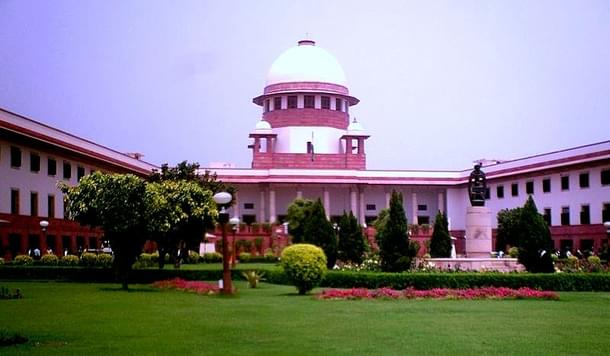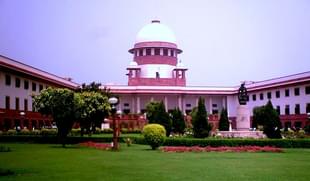Politics
Cauvery, BCCI, Sahara: Why SC Orders Are Increasingly Being Defied By Many
R Jagannathan
Sep 22, 2016, 11:50 AM | Updated 11:50 AM IST
Save & read from anywhere!
Bookmark stories for easy access on any device or the Swarajya app.


The downside of the judiciary injecting
itself into all issues, whether they
involve questions of law or otherwise, is becoming amply clear to the men in
black robes (and they are overwhelmingly men, as there is only one woman
Supreme Court judge right now).
Yesterday (21 September), the Karnataka government slipped into contempt of court when it defied the Supreme Court’s order on the release of Cauvery waters to Tamil Nadu. Though the state government has only deferred the release to Friday, the chances are it may be backed by a legislative vote on this emotive issue.
On the same day, the Board of Control for Cricket in India (BCCI) did its own minor number on another Supreme Court order, when it defied the Lodha panel recommendations on the team selection panel. Ex-CJI RM Lodha had asked the BCCI to set up a three-member selection committee with all members having test cricket experience, but the Board appointed five-member panel where at least two had no test experience – Gagan Khoda and Jatin Paranjpe.
In April this year, the Supreme
Court was livid when it discovered that almost no state government had followed
its diktat to remove illegal structures, including makeshift temples, mosques
and churches, built on public spaces. Speaking on behalf of god, the bench
headed by Justice Gopala Gowda said dramatically: “Everyone has the right to
walk. God never intended to obstruct the path meant for the people.”
But just in case the states
thought judges were less important than gods, the bench added for good measure:
“Do we give our orders to be kept in cold storage? Your chief secretaries do
not respect our orders. We will show them what we can do for not obeying.”
But the joke is really on the court. It had, in fact, issued its orders on the demolition of illegal structures as far back as in 2009, but the states treated it as an advisory and avoided taking action that could have involved stoking public anger when places of worship are removed. So they did nothing.
In August 2012, The Supreme Court handed down a verdict asking Sahara Group to wind up two schemes and return money to investors. Subrata Roy, boss of Sahara, defied the courts by repeated litigation for 18 months, before a frustrated Supreme Court ordered his arrest in February 2014. It neither held him in contempt, nor did it try to appoint an administrator to his group for failing to pay up. It just kept him in jail and demanded Rs 10,000 crore for allowing him to go out.Roy chose to remain in jail for an extended period. It was never clear why the topmost court kept a person in jail without addressing the real issue underlying his defiance: that the money may be benami.
There are three points to be made from this increasing defiance of court orders.
First, when courts wade into territory where politicians fear to tread, they are unlikely to get any respect for it. Unlike the courts, politicians are accountable to the people, and they cannot ultimately expect to remain in power by defying public opinion, or what goes for it.
Second, when courts get into areas of law-making – as was the case when the Supreme Court ordered the BCCI, a society registered in Tamil Nadu, to follow the Lodha panel’s rules rather than the one legislated by the state, or when it ordered an extra levy on high-end SUVs entering Delhi, when taxation is for the legislature to determine – they will invite disrespect. Courts cannot do what the executive and legislature are mandated to do, even if the latter are doing their jobs badly.
Third, when disputes involve not just the law, but equitable distribution of resources, as is the case with the Cauvery dispute where Karnataka feels cheated by successive verdicts against it, again court orders will be defied. The solution to water and resource disputes lies in political compromise arrived with the help of technical experts. These compromises have to be augmented with measures to generate plentiful supplies, either by pricing the resource right or by enhancing supplies, something which courts cannot ensure. The Cauvery dispute cannot be solved by legalistic argumentation in courts.
The courts need to be clear about the limits of judicial intervention and stay out of areas that are beyond their competence or jurisdiction. If they don’t do this, they will not be listened to, and there is little chance that politicians or bureaucrats or even the police will comply with their orders in spirit.
Jagannathan is former Editorial Director, Swarajya. He tweets at @TheJaggi.





